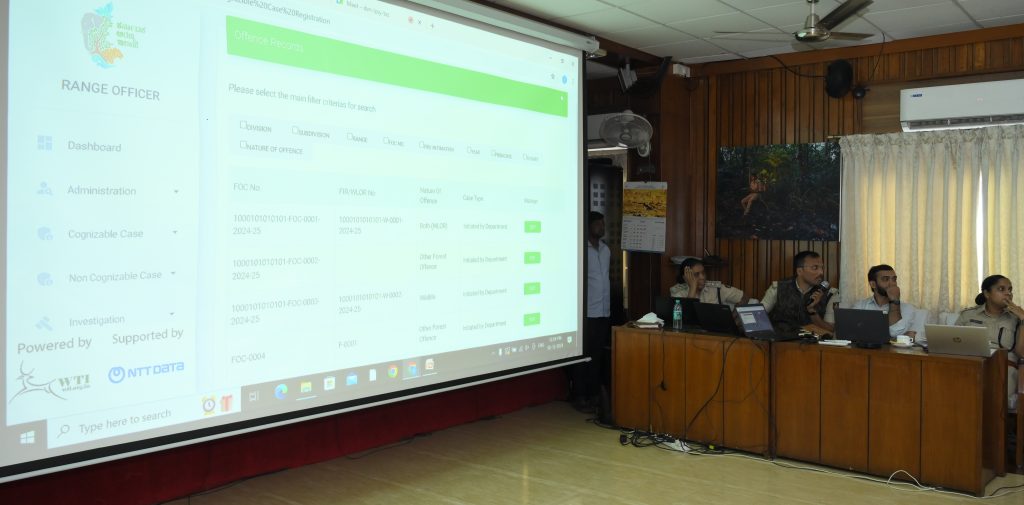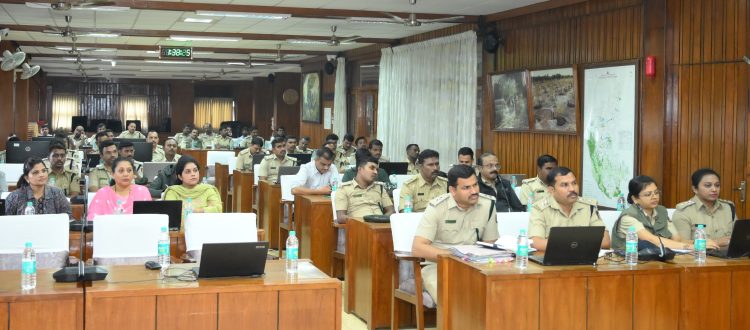Training on the case registration component of the HAWK Peregrine module in Karnataka
Bangalore,5th December 2024: The Hostile Activity Watch Kernel (HAWK) is a cloud-based information Management System developed to combat wildlife crime through a collaboration between NTT Data, the Wildlife Trust of India (WTI), and the Karnataka Forest Department. In October 2022, the Karnataka Forest Department launched the Legacy Module, one of the two components of the HAWK software.
Building on this transformative digital initiative, the second component– the ‘Peregrine’ Module, is an advanced module that focuses on comprehensive crime management, tracking every aspect of forest and wildlife crimes– from initial reporting to final court verdicts. It also includes tools for generating essential case documentation. Designed to facilitate online registration and monitoring of wildlife crime cases, the Peregrine Module is organised into three key sections: Case Registration, Investigation, and Court Duty.
Currently, the Case Registration module has been developed, while the Investigation and Court Duty modules are still in progress. This module enables forest staff to register FIRs online and initiate investigations. To assess its practicality and gather feedback from field personnel, the Karnataka Forest Department has decided to pilot the module in five Forest Divisions. Based on the results and feedback from this trial phase, the module will be implemented statewide.

Workshop on the Case Registration Module under HAWK Karnataka was held in Bangalore | Photo by Team WTI
A two-day training program was conducted at Aranya Bhavan, Bangalore, on December 2nd and 4th, 2024, to equip 80 frontline forest staff from the five Forest Divisions selected for the pilot launch of the Case Registration module. The training was jointly organised by the Karnataka Forest Department and the Wildlife Trust of India, with the support of NTT Data. The participating divisions included Bangalore Urban, Bangalore Vigilance, Bhadravati, Sirsi, and MM Hill Wildlife Sanctuary.
The training focused on equipping participants with the skills to use the software for registering FIRs and generating case-related forms. It comprised a theoretical session demonstrating case entry procedures, followed by a practical session that provided hands-on experience with case registration. After the sessions, participants shared feedback on the software’s usability and the workflow of the case procedure. Several valuable suggestions and corrections were offered, which will be incorporated into the system for improvement.









